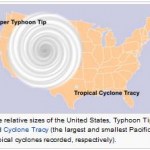Policy
One of my favorite shows right now is True Detective, an HBO show in which two cops pursue a serial killer over the course of over 16 years. Starring Woody Harrelson and Matthew McConaughey, it's an amazingly creepy show, and McConaughey is amazing at playing his character, Rustin Cohle. I'm sad that the show will be ending this week.
Unfortunately, as much as I like Matthew McConaughey as an actor, he is in part responsible for re-inspiring a movement that has the potential to do profound harm to patients and cancer research. That's because his other big role over the last year has been in…
The billion-dollar poultry industry chews up its workers and spits them out like a chaw of tobacco. One of those workers is in Washington, DC this week to make a plea to the Obama Administration. For 17 years, Salvadora Roman, 59 worked on the de-boning line at a Wayne Farms poultry processing plant in Alabama. The production line ran at an incessant pace that forced her (and her co-workers) to make tens of thousands of repetitive motions on each and every work shift. Her hands and wrists eventually became so swollen and painful that she requested to be moved to a less hand-intensive task.…
In last night's State of the Union speech, President Obama addressed several ways to "make sure our economy honors the dignity of work, and hard work pays off for every single American." Here's what he said about wage increases:
To every mayor, governor, state legislator in America, I say, you don't have to wait for Congress to act; Americans will support you if you take this on. And as a chief executive, I intend to lead by example. Profitable corporations like Costco see higher wages as the smart way to boost productivity and reduce turnover. We should too. In the coming weeks I will issue…
Welcome to the rebooted science interview series here at Confessions of a Science Librarian! The previous incarnation mostly concentrated on people in the broadly defined scholarly communications community, like Mark Patterson of eLife, Peter Binfield and Jason Hoyt of PeerJ or author Michael Nielsen.
The series has been extremely irregular for the last few years so I thought my more recent involvement with Canadian science policy advocacy presented an interesting opportunity to start over. In particular, my participation in the recent iPolitics science policy series presented itself as a…
As is occasionally my habit when a big story breaks, I have gathered together all the relevant documents I could find concerning the recent controversy about the Canadian Conservative government's recent consolidation of the libraries at their Department of Fisheries & Oceans. The consolidation has resulted in severely weeded collections, library closures and staff layoffs.
I have more to say on the situation, probably next week, but I thought I'd compile this list first both for the common good and to help me frame my own thoughts.
As usual, if you note any errors or omissions in my,…
Frog with an extra foot. Image from the Minnesota Pollution Control Agency.
Image of a frog with a missing leg from the Minnesota Pollution Control Agency.
Since 1995 deformed frogs have been turning up. Call them the canaries in the coal mine for environmental health. Frogs are showing signs of some kind of stress.
So is it a parasite? Pollution? A natural phenomenon? Cannibalism? Fungus? Ultraviolet light? Something in the water?
Video from YouTube
The tap water data referred to in the video in which they placed embryos in tap water collected from different sites in Minnesota…
Because of my involvement in this organization, I am hijacking my own blog for one day for my own nefarious purposes. To that end, I am republishing an announcement that originally appeared yesterday at a blog that a significant fraction of you are familiar with, but nowhere near all of you. And I want all of you to know about this, because I hope that some of you will join our cause.
I'm also going to add a few words of my own, because I can't help it. (As Hans Solo once said, "Hey, it's me.") The reason this new organization, the Society for Science-Based Medicine, is so needed is because,…
2012 was a year of Open Access advocacy for me. I published a ton of posts that year generally around the loose theme of making the scholarly communications ecosystem fairer and more open. In 2013 I did a little of that too, for sure.
But with a lot of the effects of the Conservative government's 2012 omnibus Bill C-38 coming home to roost with numerous cuts and closures and yet more policy changes, the thing that really motivated me to blog in an otherwise very slow blogging year was Canadian science policy.
More precisely, advocating for a fairer, more just system of government funded…
On December 5, fast-food workers mounted one-day strikes in dozens of cities (between 100 and 130 cities, depending which tally you consult) to demand higher wages and the right to unionize without reprisal. The strikes follow walkouts that started in New York City in November 2012, and a series of multi-city actions this past spring and summer. The Nation's Allison Kilkenny shares the story of Mary Coleman, a worker who has participated in several of these actions:
Mary Coleman, known to her co-workers as Ms. Mary, works at a Popeye’s in Milwaukee for $7.25 an hour. Coleman, 59, lives with…
Last week, the Occupational Safety and Health Administration (OSHA) released a proposed rule that would make public much of the injury and illness data employers are already required to collect. Large employers (those with 250 or more employees) would be required to electronically submit their injury and illness records to OSHA each quarter. In certain industries with high injury and illness rates, establishments with 20 or more employees would have to submit summary data to OSHA on an annual basis. "OSHA plans to eventually post the data online, as encouraged by President Obama's Open…
According to a new report from the Center for Effective Government, American workplace health and safety is suffering from – and as a result of – a serious lack of resources. While the number of US workplaces doubled between 1981 and 2011 and the number of US workers increased from 73 million to 129 million during this time, during the same 30 years, the number of Occupational Safety and Health Administration (OSHA) inspectors has declined. Instead of one inspector for every 1,900 workplaces, there is now only one inspector for every 4,300 workplaces (or, measured in other terms, one…
Earlier this month I wrote about the merits of policies that require conflict of interest disclosures. Last week, two items also about conflicts of interest landed in my in-box. They were just too juicy to not take a bite, and write about here.
First came a commentary from the October 2013 issue of the Annals of Occupational Hygiene written by the journal’s chief editor Noah Seixas, PhD, MS. The lead paragraph reads:
"On 6 June 2013, a court in New York handed down a decision that calls into question the validity of research that was sponsored by Georgia-Pacific [GP] and published…
Sarah Boon (Twitter, blog) has organized a series of posts on science policy in Canada over the next month or so to be published in the iPolitics online magazine. The first four are out with another eight (two approximately every Monday) between now and November 18th. Which is just in time for the upcoming Canadian Science Policy Conference in Toronto starting November 20th.
The articles are available open access. I'll list the first bunch here, including my own contribution comparing what's going on at Library and Archives Canada with similar assaults on science. I will update this post as…
How bad is it? Even the New York Times has noticed what is going on with Canadian science, comparing the situation here unfavourably with the situation in the US under George W. Bush.
It began badly enough in 2008 when scientists working for Environment Canada, the federal agency, were told to refer all queries to departmental communications officers. Now the government is doing all it can to monitor and restrict the flow of scientific information, especially concerning research into climate change, fisheries and anything to do with the Alberta tar sands — source of the diluted bitumen that…
Tomorrow, as mandated by the Patient Protection and the Affordable Care Act (PPACA, often called just the Affordable Care Act, or ACA, or "Obamacare"), the government-maintained health insurance exchanges will open for business (that is, assuming the likely government shutdown doesn't stop them temporarily). This post will be basically a followup to a post I did almost a year ago that used a statement by Mitt Romney during the height of the Presidential campaign as a jumping off point to look at the relationship between health insurance status and mortality. Unfortunately, it is not entirely…
Darrell Bricker and John Ibbitson's book The Big Shift: The Seismic Change in Canadian Politics, Business, and Culture and What It Means for Our Future is pretty obviously not a science book. Rather, it's a book about Canadian politics. But of course here in Canada these days, it's hard to talk about science without talking about politics at least a little. This book is interesting from a science policy perspective since it endeavors to give insight into the deeper rationale behind the current Conservative government's actions. In a sense, it asks, "What kind of Canada do Stephen Harper and…
These things are all connected.
A couple of days ago a good ally in the climate change fight ... the fight to make people realize that climate change is not some librul conspiracy to raise taxes on the rich ... goofed. It was a minor goof, barely a goof at all. We do not yet know the nature of the goof but it was somewhere between saying something in a slightly clumsy manner and a bit of misremembering something that happened in 2005 during an interview. That's it. Nothing else to see here.
But that goof has been wrenched form its context and turned into a senseless and embarrassingly…
In a recent opinion piece in the Detroit Free Press, David Fukuzawa of the Kresge Foundation suggests that improving the performance of Detroit's public school children requires tackling lead poisoning. Federal and state funds to prevent lead poisoning have dropped, and the millions of dollars spent to improve Detroit schools "cannot succeed without improving the public health of the city's children, especially young children." Reducing lead exposure can be costly and complicated, but the payoff is worth it.
Even though the Consumer Product Safety Commission banned lead paint in 1978, housing…
On May 20th, 2013 I published my most popular post ever. It was The Canadian War on Science: A long, unexaggerated, devastating chronological indictment. In it, I chronicled at some considerable length the various anti-science measures by the current Canadian Conservative government. The chronological aspect was particularly interesting as you could see the ramping up since the 2011 election where the Conservatives won a majority government after two consecutive minority Conservative governments.
As an exercise in alt-metrics (and here), I thought I would share some of the reactions and…
The Supreme Court's decisions on marriage equality and the Voting Rights Act got a lot of media attention last week, but several of the Court's other decisions also have implications for public health -- and they came down on the side of employers, real-estate developers, and drug manufacturers.
In a Washington Post op-ed, Georgetown University law professor David Cole warns, "the underlying theme of the Supreme Court’s term was not the recognition of rights, but their dilution." He points to two cases involving employment discrimination:
In a pair of less-noticed decisions released the…


